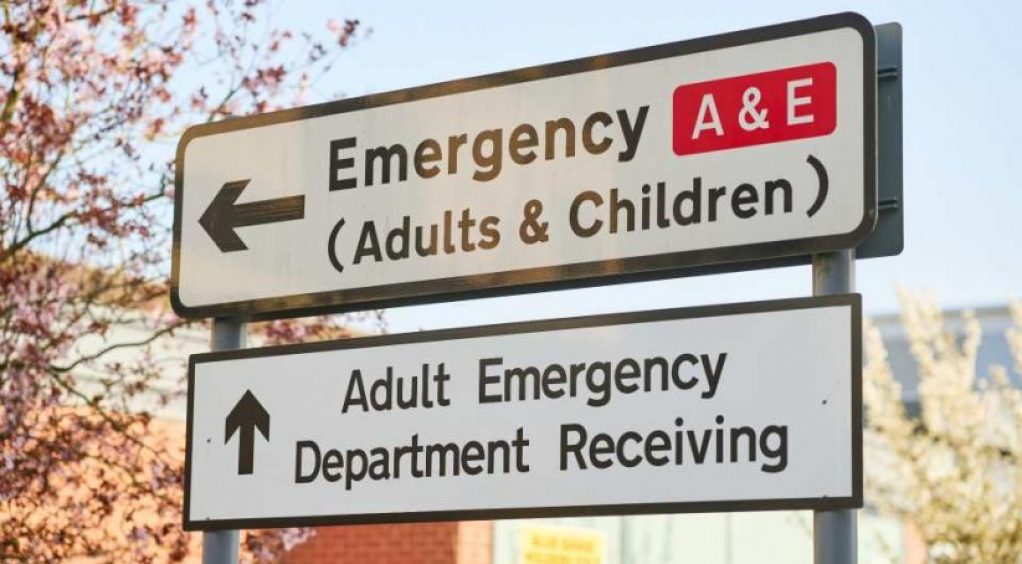Derbyshire Health and Care System Critical Incident Continues: patients urged to not store up care needs
Updated 1400hrs, Sunday 24th July 2022
The Derbyshire health and care system continues to declare a critical incident on Sunday due to continued significant and sustained demand for urgent and emergency care services.
Having called the critical incident on Wednesday afternoon, system’s Strategic and Tactical Command Groups continue to manage the incident this weekend, working in conjunction with NHS England. The critical incident status will reviewed at the system’s Strategic Command meeting at 1530hrs on Monday 25th July.
Sunday’s current position remains critical, with services concerned about the normal spike of urgent and emergency care activity which occurs on Mondays. Patients are being asked to not store up care needs until Monday, and seek medical advice for illness and injury on Sunday to help flatten the curve of demand. This will help services manage demand much more safely.
Services remain open through the weekend and continue to prioritise patients with the highest level of need. Patients can access the following services during Sunday to avoid the need to place avoidable demand on ambulance services and Emergency Departments on Monday:
- www.111.nhs.uk can tell you where to get help for your symptoms if you’re not sure what to do, how to find general health information and advice, where to get an emergency supply of your prescribed medicine and how to get a repeat prescription. You can also call NHS 111 to speak to a clinician and make bookings for urgent treatment centres and other services. The online and telephone services are available 24/7.
- Urgent Treatment Centres at Buxton, Darley Dale, Ripley, Ilkeston and Osmaston Road in Derby are open until 8pm on Sunday evening and from 8am on Monday morning to treat injuries including sprains, strains, suspected fractures, bites, cuts, scalds and other non-emergency conditions. Waiting times are usually much shorter than two hours.
- Anyone who is in mental health distress should call the Derbyshire Mental Health Helpline and Support Service: 0800 028 0077 – the helpline is open 24 hours a day.
What else can members of the public do to help?
Our teams continue to work exceptionally hard and we would like to reassure our patients and the public that despite the challenges faced and the changes highlighted, essential services remain fully open for anyone who needs them so if someone requires urgent medical help, they should continue to come forward.
Other things which everyone can do to help the NHS right now, include:
- Only call 999 or attend accident and emergency departments for serious accidents and for genuine emergencies.
- When needing urgent medical care but it’s not an emergency, visit NHS 111 online or call NHS111 for advice on how to get care at any time of day or night.
- Urgent treatment centres – like the ones at Osmaston Road in Derby, Ilkeston, Ripley, Darley Dale, Buxton, Samuel Johnson and Robert Peel Community Hospitals can help get the care needed for dealing with the most common issues that people attend emergency departments for. They will often be able to help get the care needed more quickly than accident and emergency departments if suffering from things like a burn or a sprain.
- For other non-urgent cases when needing medical advice and it’s not an emergency, speak to your GP practice or a pharmacist.
- Please continue to treat all NHS and care staff with the respect they deserve. Our hard-working staff and volunteers are doing all they can to keep patients safe and supported.
- If unable to make any NHS appointment, please contact the number on appointment letters so that it can be reallocated to another patient.
- Check on anyone who has an existing respiratory condition, such as asthma or COPD, to ensure they are okay and not suffering from additional wheeziness or shortness of breath as a result of the pandemic. If anyone has these symptoms, please ensure they are following their care plan with medication, inhalers and oxygen support, and contact NHS 111 to seek clinical advice where required. It is essential that they receive treatment early and seek to prevent an admission to hospital.

